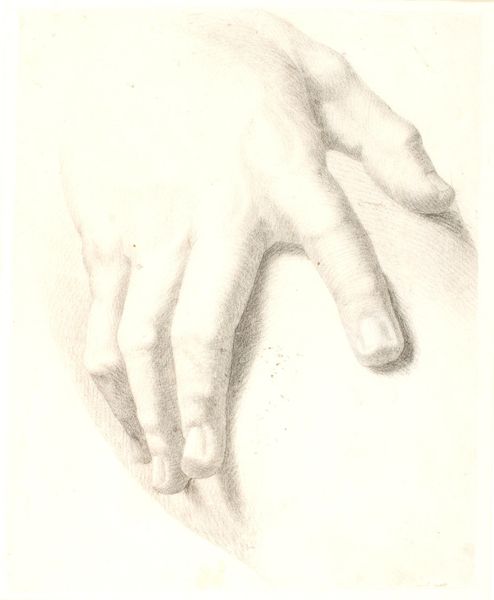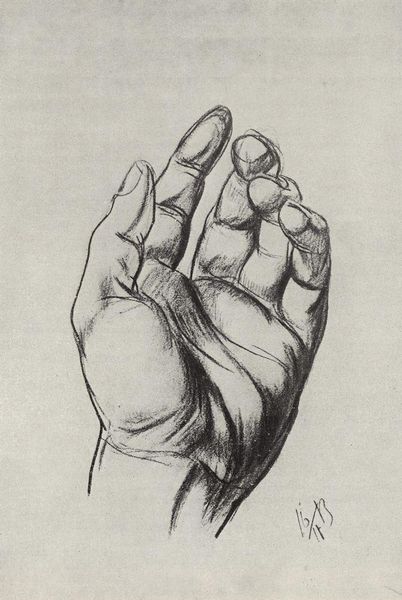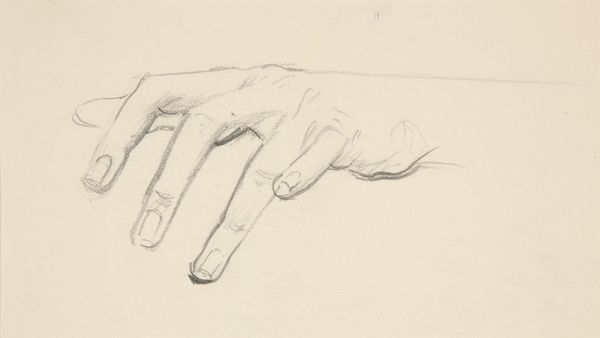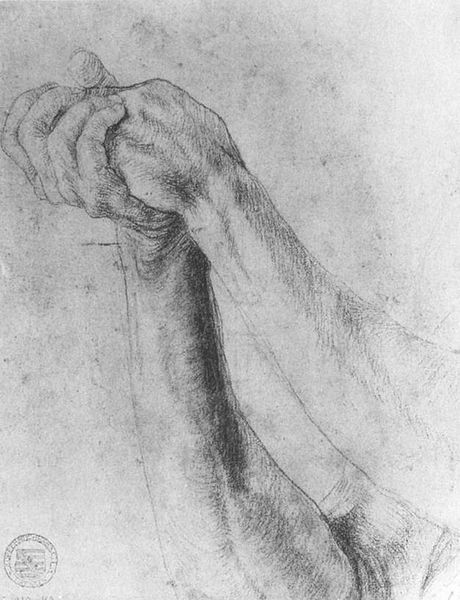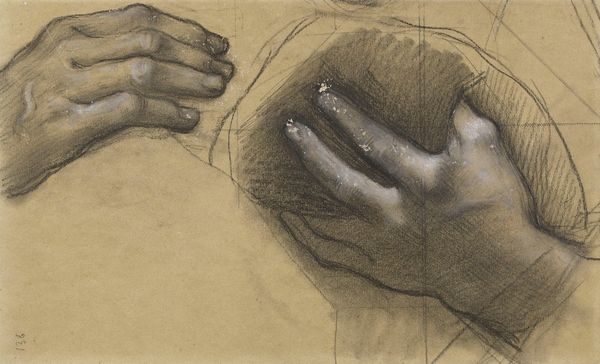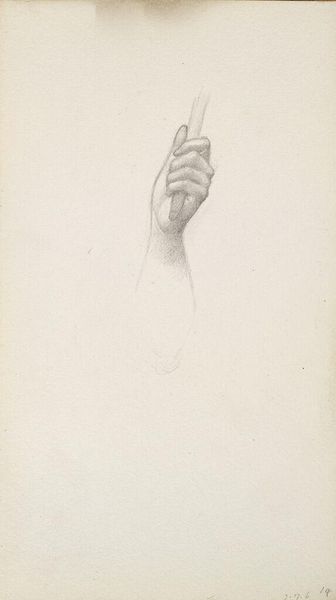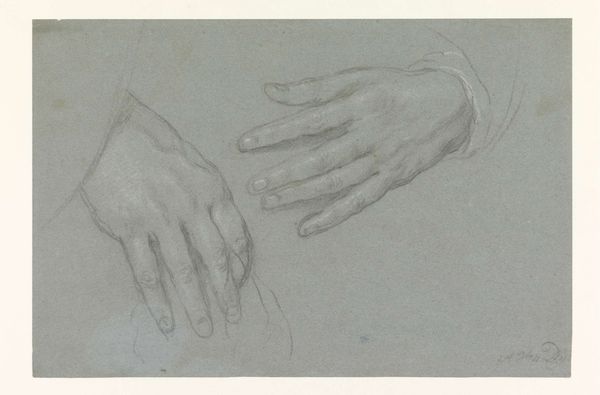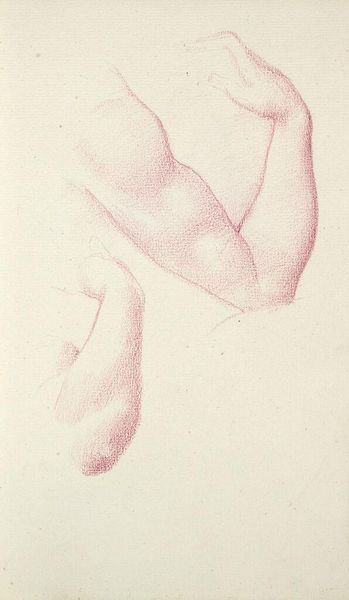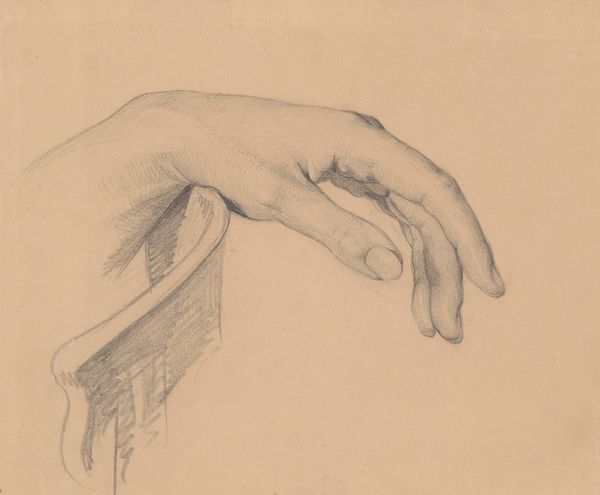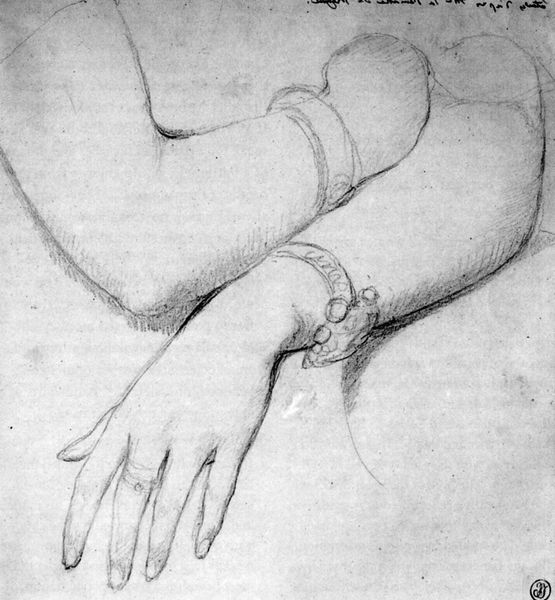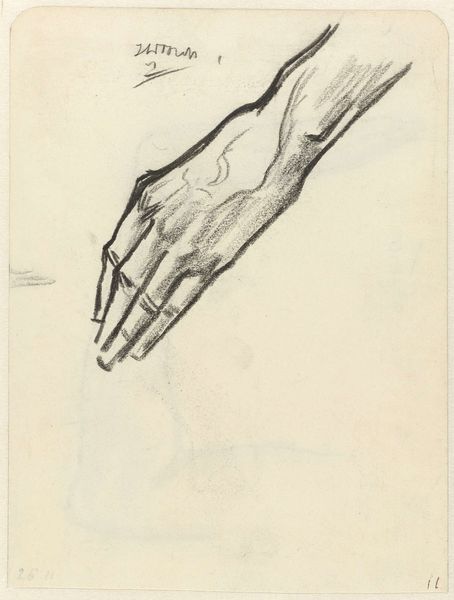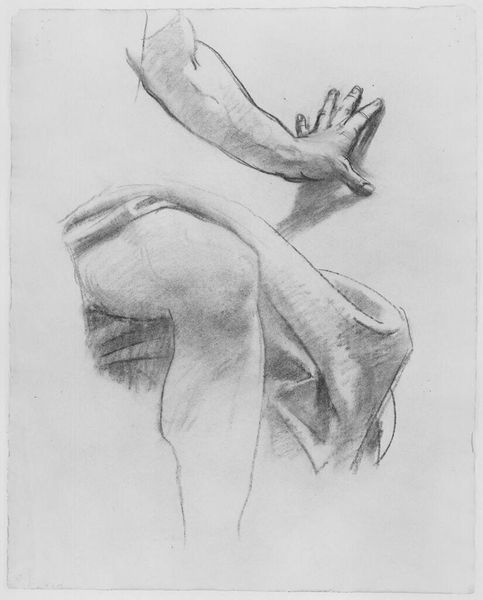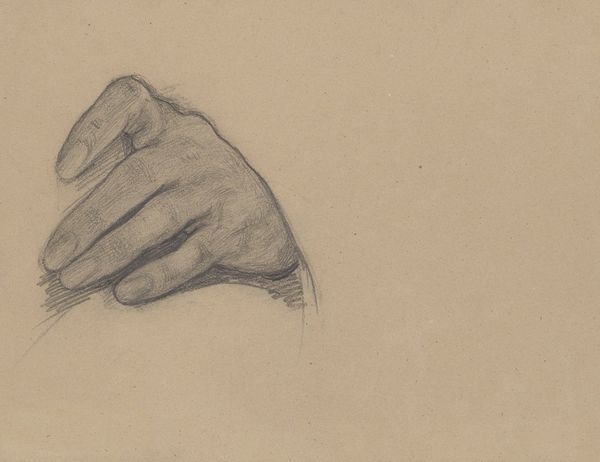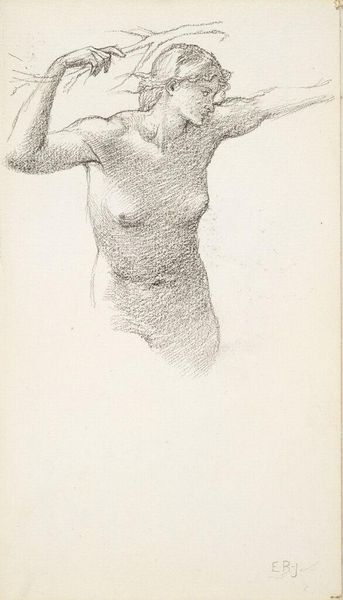
drawing, charcoal
#
drawing
#
german-expressionism
#
charcoal drawing
#
figuration
#
form
#
charcoal
Copyright: Public domain
Curator: Kuzma Petrov-Vodkin created this arresting charcoal drawing, "Hand," in 1915. Editor: The stark contrast of the charcoal immediately grabs me. There's a drama, a solemnity even, in the way the light catches the knuckles and the base of the palm. It's a rather large hand too. Curator: Large and looming, yes. It was created during a period of immense upheaval, right at the onset of World War One, an event that certainly shaped the cultural landscape and artistic output across Europe, especially within the context of German Expressionism, and in Petrov-Vodkin's work too. How do you think this political moment informs this very intimate portrait? Editor: In considering the time it was made, perhaps the artist sought to explore what the body represents and the potential role of labor during war. A single, perhaps working-class, hand feels emblematic of that fraught socio-economic context. But hands also give, protect, reach out. There’s a kind of offering suggested here, yet it feels equally like a gesture of warning or protection. Curator: That interpretation absolutely resonates. I also see the strong formal lines speaking to a quest for solidity in a fracturing world, even to some attempt to convey the emotional experience during a period when Russian Symbolism still loomed large in its artistic legacy, while more critical styles were emerging. The hand, as a synecdoche for the whole person, might stand as a metaphor for the psychological weight of that era. Editor: A single body, reaching out against chaos. It makes one think of personal identity—how the self becomes intertwined with historical context. Does such artistic focus bring personal clarity, or add an unsettling dimension to these turbulent histories? Curator: Ultimately, I see "Hand" as an evocative study in both the expressive power of form and the weighty influence of its historical moment. It embodies art’s capacity to address both human intimacy and collective anxiety. Editor: For me, this work invites a deeper reflection on the nature of individual experience in relationship to massive socio-political shifts. And its haunting starkness leaves me pondering long after viewing it.
Comments
No comments
Be the first to comment and join the conversation on the ultimate creative platform.
